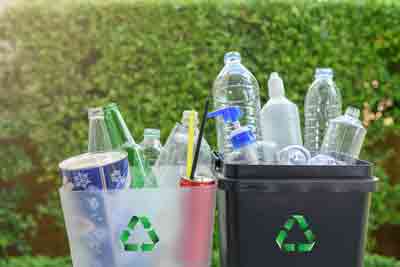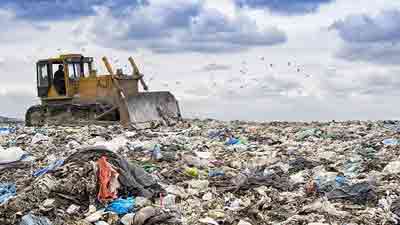Eco-friendliness became extremely popular in recent years. You frequently hear about global warming and pollution.
You’ve learned that we need to be more responsible when it comes to waste management. It is preferable to avoid dumping waste in rivers and oceans. And you should definitely recycle.
If you stand for eco-friendliness, you are more likely to hire an online admission essay writing service to avoid wasting several paper sheets on drafting your essay.
Or you can simply use a lot of paper sheets for drafts, knowing that all that paper is going to be recycled afterward.
A lot of countries practice recycling, with many implementing laws on sorting trash.
While you may expect the United States or Canada to lead the recycling race, unfortunately, while they are in the top 25 countries by recycling rate, they have a long way to go to get into the top 10.
The current top 10 consists almost entirely from European countries:
- Germany – recycling 56,1% of the municipal waste;
- Austria – 53.8%;
- South Korea – 53,7%;
- Wales – 52,2%;
- Switzerland – 49,7%;
- Italy – 49,6%
- Belgium – 49,4%;
- Netherlands – 46,3%;
- Slovenia – 45,8%
- Singapore – 34,5%;
But with media coverage of the importance of recycling, the picture can change. And it’s important to remember that even the attitude of one person can lead to a change.
But, in order to do it properly, you need to know the misconceptions about trash recycling.
It’s Not Important to Separate Regular Trash from Recycling One
One of the most popular misconceptions about recycling trash is that anything can be recycled.
But while it’s close to the truth, it doesn’t mean that you can put everything in the recycling bin.
For example, broken glass shouldn’t get in the paper recycling bin, as it can damage the paper processing machinery.
Don’t forget that recycling is about making the trash usable again. And piling all sorts of trash together can lead to contamination of the products.
Around a quarter of everything we put in the recycling bins cannot be recycled, simply because recycling programs are not designed to deal with waste diversity.
Food waste, rubber hoses, low-grade plastics put together with paper will only contaminate it. It will lug the machinery and put the workers at risk.
That’s why sorting trash is extremely important. Neglecting it can lead to serious problems at trash recycling plants, and undermine the whole idea of recycling.
Materials Can’t Be Recycled Several Times
Another popular myth about recycling is that you can recycle a material only once. It can be true, when it comes to plastic, simply because the material has a shorter lifespan than others.
But glass and various metals can be recycled over and over without a hint of degradation.
A plastic product, on the other hand, can be recycled into another plastic product two times maximum.
After being recycled once, the next time plastic is going to be turned into non-recyclable items, like part of clothing or furnishing. But things tend to change, as the same could’ve been said about paper just several years ago.
While paper still gets more damaged with each recycling process, the quality of recycled paper has improved over the years.
The standard piece of paper used for the printer can be recycled up to seven times, and still be used as new paper. And only after that, it can be turned into lower-grade materials, like packaging cartons.
Products Made from Recycled Materials Have Lower Quality
Despite the fact that things have improved dramatically in the past few decades, the myth about products from recycled materials being subpar persists.
Yes, several decades ago recycled materials were weak. Some still remember that awful grey paper and plastic that seemed too soft.
But thanks to advanced technologies, the quality level of recycled materials has increased drastically. Nowadays, recycled materials meet the highest quality standards.
Thus, there’s no reason to believe that products made out of them have lower quality.
Recycling Doesn’t Matter as More Waste Goes to Landfills
You can often hear it from those who say that recycling doesn’t change anything.
While there is a substantial amount of waste that ends up in landfills, it pales in comparison to the number of trash that can be recycled.
For example, in the United Kingdom, annual recycling dominates landfilling. And the UK is not even in the top ten countries by waste recycling rate.
Around four million tons of waste end up landfilled, while recycled waste stands at nearly eleven million in the UK.
While this misconception can easily lead to the ongoing debate on which is better, it is irresponsible to claim that more waste is landfilled. And here comes sorting again.
As only non-recycled waste ends up in landfills. Besides, landfills often provide waste for incineration, which is waste-to-energy transformation.
Glass is Glass, No Point in Sorting It
Another popular misconception about recycling is that there’s no problem with mixing glasses of different colors.
There are various cities across the world with different recycling bins for different colors of glass. The main point of recycling is having a product recycled and reused.
And the idea that you can throw glasses of various colors in one container undermines its idea.
If you want your glass to be recycled and turned into a new glass, think about whether you’re going to buy glass with brown, green, and white spots on it.
And that’s what the end result would look like if you recycle glass of various colors together. So, don’t forget to sort the glass before trashing it.
Final Thoughts
Those misconceptions are quite problematic, as in many respects they undermine the point of recycling.
Yes, it’s not as preposterous as believing that recycling is more energy-consuming than manufacturing new products.
But misunderstanding of the process, while supporting it, can lead to more catastrophic outcomes than simply denying it.
Thus, understanding the importance of recycling must come with the understanding of the processes involved.




No Comments